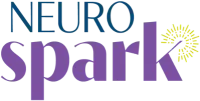Understanding Autism Testing: A Neurodiversity-Affirming Approach

Table of Contents:
Autism and neurodiversity have garnered significant attention in recent years. Traditional, pathologizing approaches often focus on autism as a condition that needs to be treated or cured. However, the neurodiversity movement promotes a more affirming perspective, recognizing autism as a natural variation of human neurology.
In this guide, we explore how autism testing can align with this affirming lens. Whether you’re seeking a formal evaluation or self-identifying as autistic, this blog offers insight into what respectful, accurate adult autism assessments can and should look like.
Why Do Adults Seek Autism Testing?
Autism testing serves several purposes, including:
Self-Understanding and Identity
For many adults, a diagnosis brings validation. It explains lifelong patterns and challenges that may have been misunderstood or misdiagnosed. A neurodiversity-affirming diagnosis can become a turning point, helping you unmask, connect, and advocate for yourself in ways that feel authentic.
Access to Accommodations
A formal diagnosis can unlock workplace accommodations, academic supports, or disability benefits. At NeuroSpark Health, we help adults navigate accommodations after an autism diagnosis.
Connection and Community
Understanding your neurotype can deepen relationships and help you find belonging in the wider autistic community. Diagnosis can be a tool, not for fixing, but for belonging.
What Does Autism Testing Involve?
Autism assessments for adults typically include:
- A developmental history interview
- Behavioral observations
- Standardized measures like the MIGDAS-2
- Optional input from family or close contacts
At NeuroSpark Health, we use a collaborative, narrative-based approach that honors your lived experience. Learn more about our adult autism evaluation process.
What Makes an Assessment Neurodiversity-Affirming?
Flexible and Person-Centered
There’s no single “autistic profile.” Testing should accommodate diverse communication styles, sensory preferences, and cognitive differences.
Strengths-Based and Identity-Aware
We avoid framing traits as deficits. Instead, we explore patterns, interests, coping strategies, and strengths. The goal is not to “diagnose what’s wrong” but to understand how autism uniquely shows up in your life.
Culturally and Linguistically Sensitive
Autism traits can look different across cultures. Affirming evaluations consider context, avoid Western-centric norms, and use respectful language, including your preferred identity-first or person-first terminology.
Should I Use the RAADS-R or CAT-Q?
RAADS-R: Caution Advised
The RAADS-R is a self-report screener some people use before or during an autism assessment. While research suggests it’s reliable in some settings, many neurodivergent adults—including our team—find the questions confusing, rigid, or based on stereotypes.
👉 Learn more in our blog: Is the RAADS-R a Good Test for Adult Autism?
CAT-Q: Exploring Masking
The Camouflaging Autistic Traits Questionnaire (CAT-Q) is a tool that looks at masking, the often unconscious habit of hiding autistic traits to blend in. We use this tool to better understand burnout risk, identity development, and how masking has shaped a person’s life.
👉 Learn more in our blog: The Camouflaging Autistic Traits Questionnaire (CAT-Q)
Can You Be Autistic Without a Formal Diagnosis?
Yes. Self-identification is valid. Many adults, especially those from marginalized communities, face barriers to formal diagnosis. Neurodiversity-affirming care respects self-diagnosed individuals and supports them in accessing resources and community.
👉 Explore: Am I Autistic?
What Happens After a Diagnosis?
Receiving a diagnosis can be life-changing. It often leads to:
- Greater self-compassion
- A reduction in internalized shame
- Connection with other autistic adults
- Access to accommodations and support
Affirming care goes beyond the diagnosis. That’s why we offer post-diagnosis support.
Why This Matters
When autism testing reflects your lived experience, it can become a powerful act of self-recognition, not just a label. It can help you advocate for your needs, build healthier relationships, and finally feel seen for who you’ve always been. By incorporating tools like the RAADS-R and CAT-Q, we can create a more empowering process for those seeking autism testing. Embracing neurodiversity means recognizing and celebrating the unique contributions of autistic individuals, advocating for acceptance, and promoting a society where everyone can thrive.
Ready to Learn More?
Schedule a free consult with our team to talk through your options. We offer affirming adult autism assessments across the U.S. designed by and for neurodivergent people.

Cat Salladin, LSW
One Spark Can Light a Fire
Diagnosis can be the catalyst for significant momentum. It can represent a turning point for your life, where you can move forward equipped with new knowledge about yourself and a new framework to guide you in your journey.
A formal assessment provides an incredible opportunity to gain knowledge about who you are and how you see the world.



